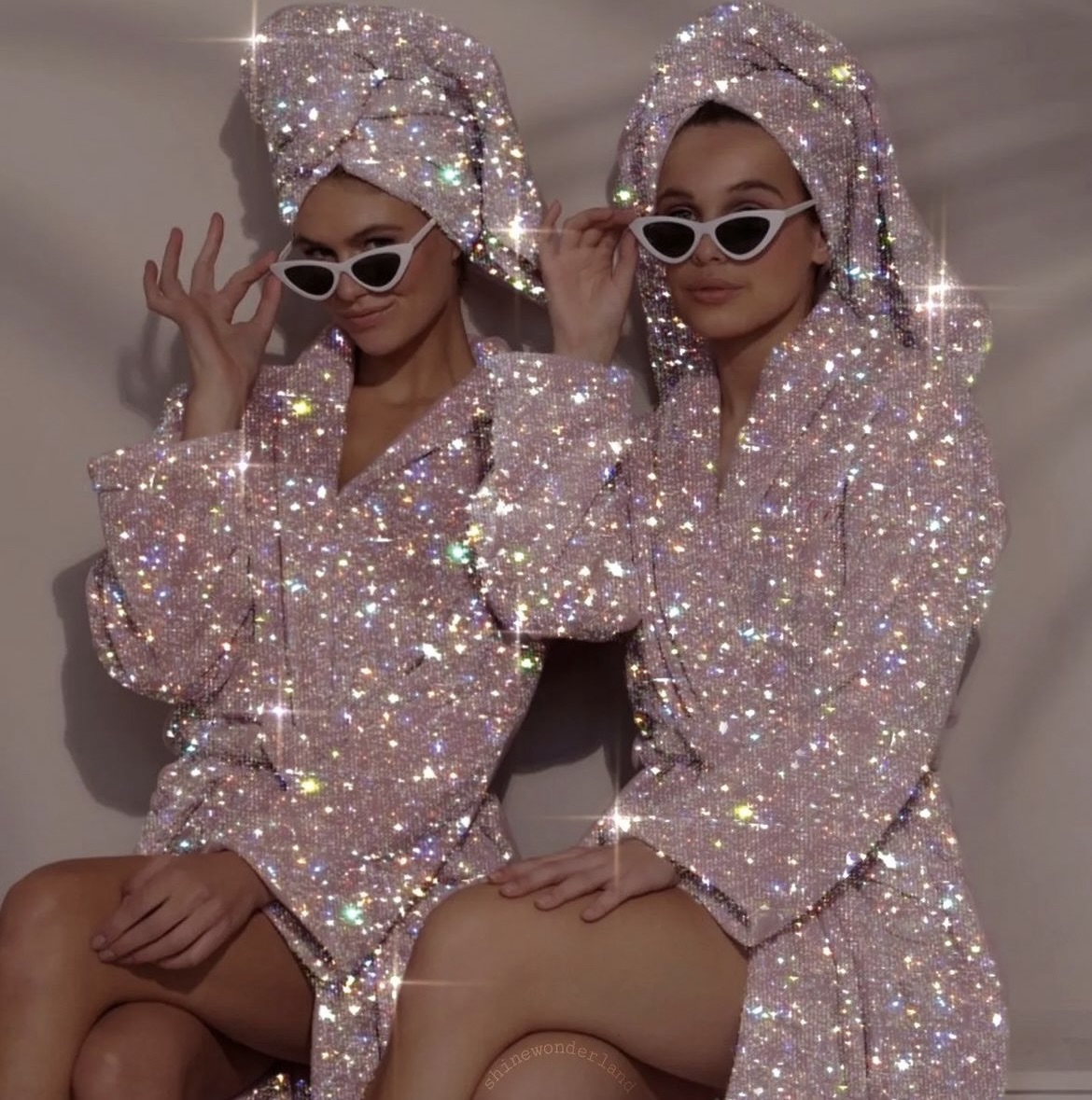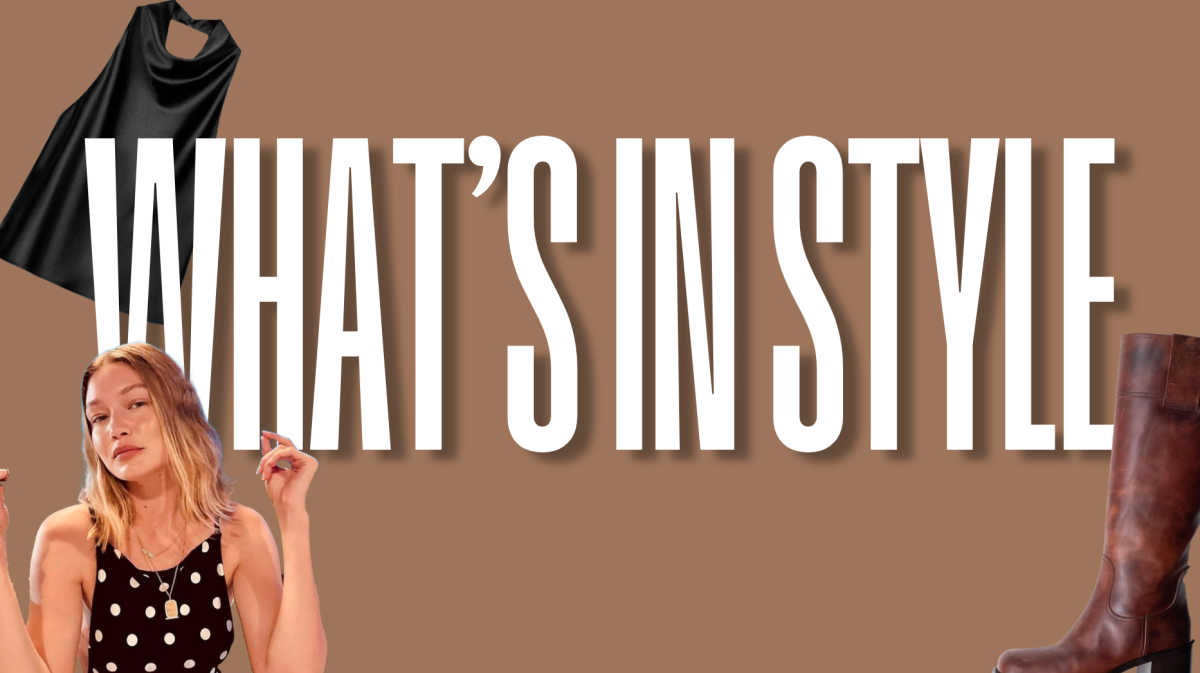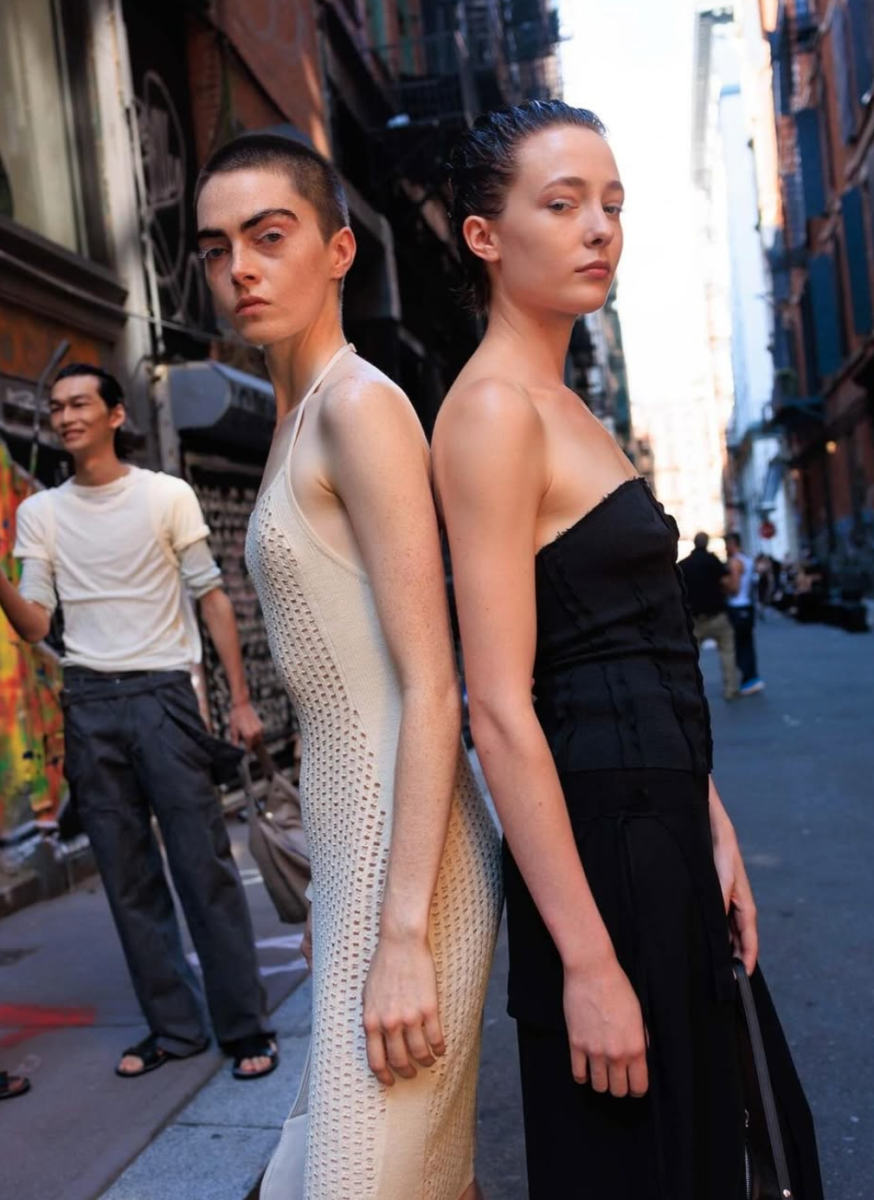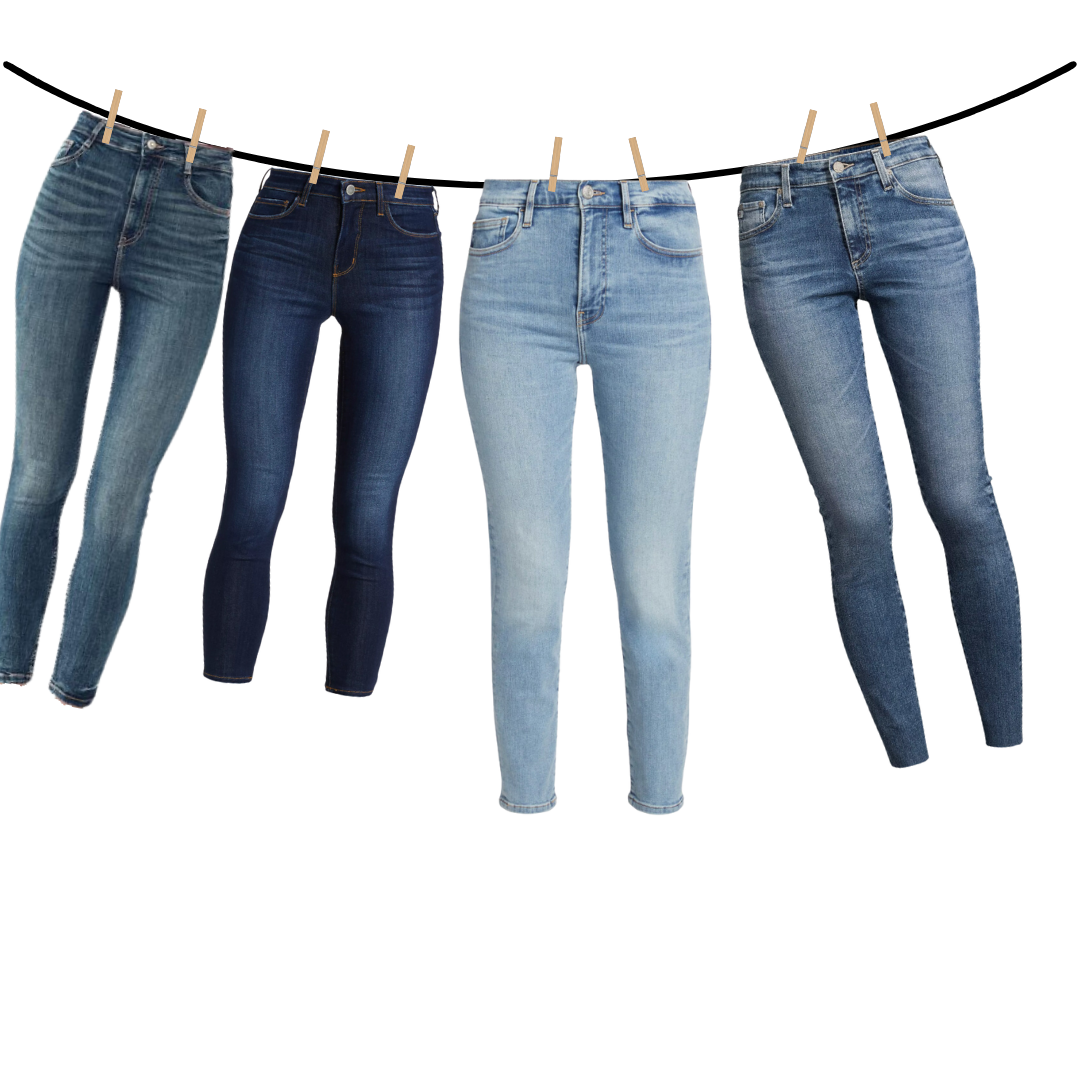Come December, glitter, sequins and shimmer take over as we transition into the holiday season. From sparkling party dresses and shiny festive wear, something about the “magic” of glitter makes it so indispensable during this time of year. Many people have a certain love for holiday wear, enjoying shimmery outfits and accessories that carry a sense of joy, one that feels unique to the season. But once the festivities are over, it quickly reverts to being seen as childish, outdated and tacky — a style that is no longer embraced and rather avoided.
This close tie between glitter and holiday celebration is a result of a history in which the fabric has been used as an emblem of the excitement, festivity and warmth that define the holiday atmosphere.
Serving as a statement piece, it is often the perfect way to add to the joy that comes with celebration. Festive aesthetics of Christmas lights, holiday decorations and even the glam of New Year’s Eve, all help reserve a place for glitter during this time of year. Especially as we head into the colder, darker months, the holiday season is an exciting time to look forward to. This desire that builds as we get closer to Christmas time provides the exception for the glitzy wardrobe to come out and exemplify the experience of the holidays.
Additionally, wintertime makes it easy to incorporate and embrace glitter in your wardrobe. Designer brands like Prada, Never Fully Dressed and Birger Christensen release holiday collections to add to the appeal of festive wear. The hosting of holiday parties or family and friend get-togethers provide special events where it is acceptable, if not encouraged, to show off the shimmery pieces in your closet. Pop culture also influences this trend through many TV shows and music videos using sparkly clothing as a representation of the holiday season. Whether it’s the Christmas episodes of “Sex and the City” that almost always have Carrie Bradshaw in iconic, glitzy outfits, or Mariah Carey’s new “All I Want For Christmas” music video that shows her background dancers in silver, shimmery skirts, glitter generally enters the fashion landscape once we pass Thanksgiving.
Post-holiday, as we fall into glitter’s “off-season,” it becomes increasingly unacceptable in everyday wear due to its flashy nature. An outfit that aligns with Christmas spirit transitions to being overly extravagant and just rather juvenile. Unless it is connected to a festive occasion, sequins typically stay put away, or else you risk a failed attempt at maximalism. This is likely because of the conflict between glitter’s bold reputation and the modern trends of minimalism, simple neutrals and a classy aesthetic.
As a way to assimilate glitter into the current everyday trends, designers have attempted to rebrand glitter to make it more wearable and sophisticated. By incorporating sequins in subtle, muted ways or using them as an accessory rather than the centrality of the outfit, we have seen some modern moments of glittery fashion. Many designers even use sustainability as a reason to take on this attempt at reviving sequined clothing. Developing more eco-friendly options in an effort to make glitter biodegradable, a campaign of pushing environment-conscious fashion choices could help distance glitter from its typical holiday correlation.
Glitter’s cyclical return for the holiday season creates a stigma that the fun, flashy fabric is only trendy for times of festivity. As the role of glitter evolves, there is always a chance it will find its way into mainstream fashion. Though even if it remains a holiday clothing staple, the addition of glitter into your closet can provide a bold and unique twist to your wardrobe, wintertime or not.











































































































































































































